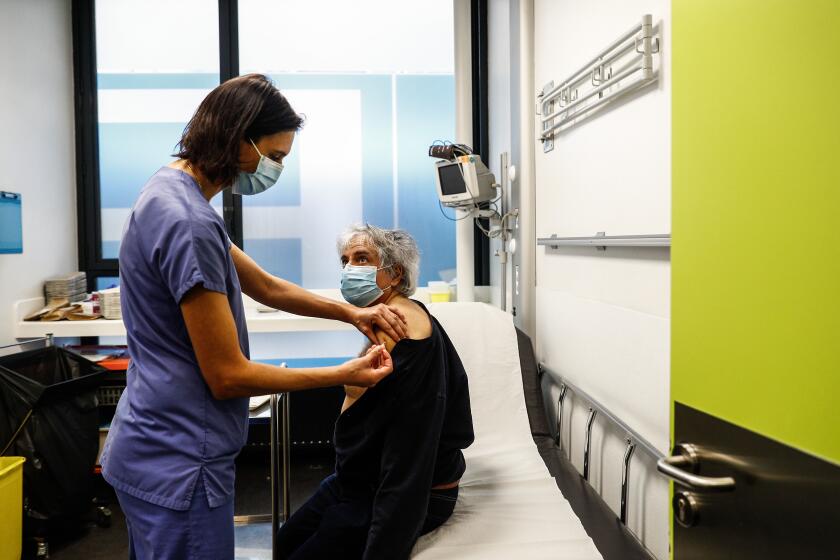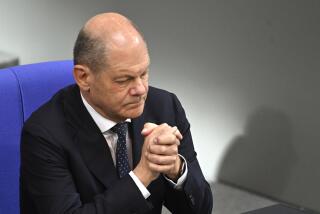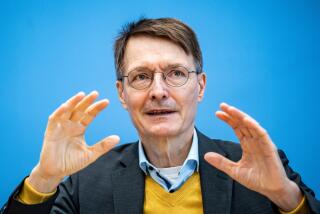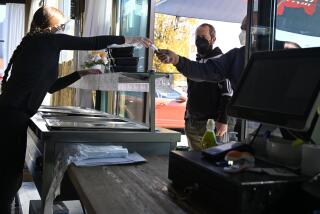Germany extends coronavirus lockdown until Jan. 31 and toughens curbs
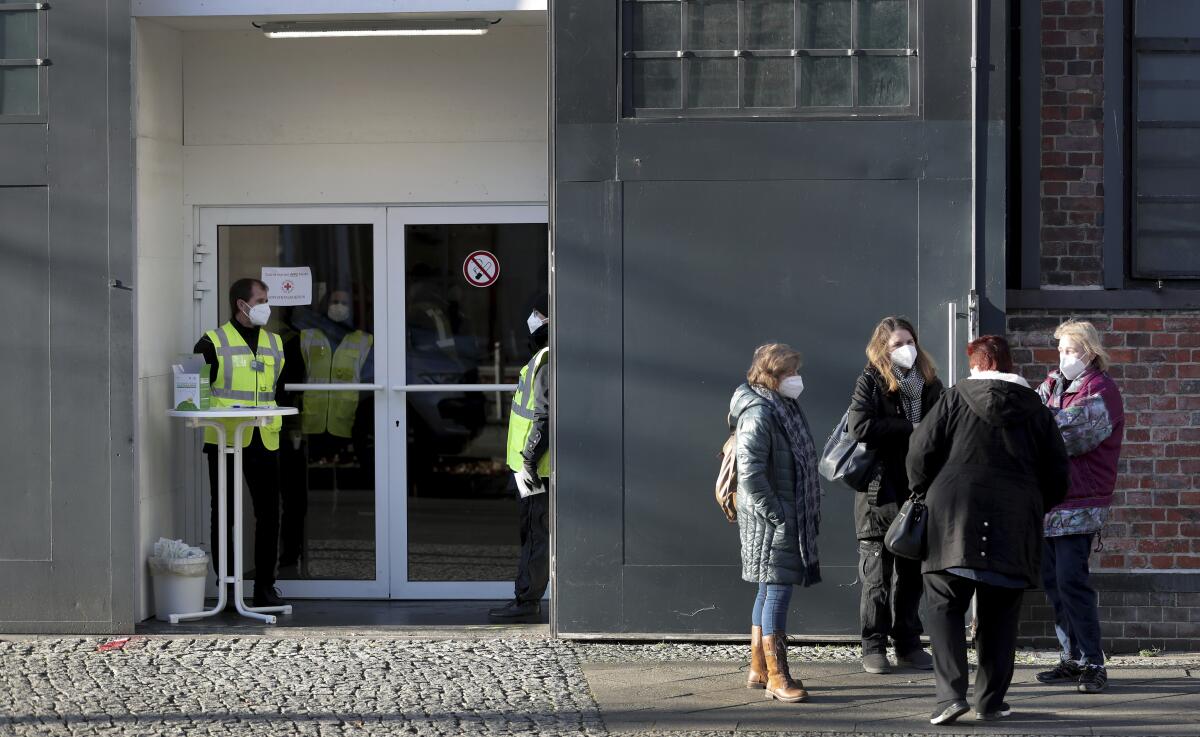
- Share via
BERLIN — The German government said Tuesday it is extending the country’s lockdown by three weeks until Jan. 31, tightening curbs on social contacts and planning limits on people’s movements in the worst-affected regions as it tries to reduce stubbornly high infection rates and worrying numbers of coronavirus-related deaths.
Chancellor Angela Merkel said it was “absolutely necessary” to maintain restrictions, particularly in light of a more infectious variant of the virus that emerged in England.
“We must reach a point where we can once again follow the chains of infection,” Merkel said after a lengthy videoconference with Germany’s 16 state governors. “Otherwise, we will just keep going back into a lockdown after a short relaxation.”
The chancellor said that restrictions on social contacts will be tightened. People will be allowed to meet only one person outside their own household.
In a new move, authorities across Germany will allow people in areas with more than 200 new infections per 100,000 residents over seven days to travel just over nine miles from their hometown unless they have a good reason to go farther.
“In particular, day trips are not a good reason,” Merkel said. She pointed to a string of recent incidents in which day-trippers hoping to ski or sled have overrun winter resorts even though lifts and other facilities are closed.
Merkel and the governors plan to confer again Jan. 25 on what happens after the end of the month.
Germany launched a nationwide partial shutdown Nov. 2, closing restaurants, bars, leisure and sports facilities. That failed to reduce infection figures, and the current lockdown — which closed nonessential shops and schools — took effect Dec. 16. It was initially due to run through Jan. 10.
The French are among the most reluctant people in the world to get a COVID-19 shot because of distrust of the government and past health scandals.
Authorities say Germany’s reported numbers for COVID-19 cases are distorted by lower testing and delayed reporting over the Christmas and New Year’s period. The country’s disease control center says it expects to have a reliable picture of what is going on only from Jan. 17, Merkel said.
But even according to the current figures, Germany is far from its declared aim of getting new confirmed cases below 50 per 100,000 residents over seven days — the maximum level at which officials say contact-tracing can work properly.
On Tuesday, the infection rate stood at 134.7 per 100,000 nationwide, and 944 more deaths were reported to authorities in 24 hours, one of the highest daily death tolls yet in a country that had a relatively low COVID-19 mortality rate during the pandemic’s first phase.
Merkel said the emergence of the new variant in England is “one reason more” to keep up restrictions. A few cases of the variant have been detected in Germany.
The chancellor defended Germany’s approach to vaccinations after criticism fueled by perceptions that Europe has made a slow start and that the European Union was too hesitant in ordering the BioNTech-Pfizer vaccine, the only one so far cleared for use in the 27-nation bloc.
Germany had vaccinated nearly 317,000 people by Tuesday, just over a week into the campaign. That’s a better showing than in several other EU countries, but critics have pointed to faster progress in Britain, the United States and Israel.
Merkel said it was “right and important” for the EU rather than individual countries to order vaccines for the whole bloc. She said that it “is in Germany’s interests”because the country is surrounded by other EU member nations and in the middle of the EU trade zone that relies on open borders.
“A high number of vaccinated people in Germany combined with many who aren’t vaccinated in our neighborhood won’t be good for Germany,” she said. “So we don’t want national solo efforts. We think the most effective health protection for us can be attained through a common European procedure.”
Health Minister Jens Spahn, who has faced criticism from inside Germany’s governing coalition, has repeatedly said that vaccinations are progressing as expected and that the slow start is because teams are first going to nursing homes to vaccinate the most vulnerable. Merkel said she thinks Spahn is doing “a great job.”
More to Read
Sign up for Essential California
The most important California stories and recommendations in your inbox every morning.
You may occasionally receive promotional content from the Los Angeles Times.
